Bulgaria's Tourism in Need of Private-Public Partnership
Sofia Echo Com, 08.05.2006
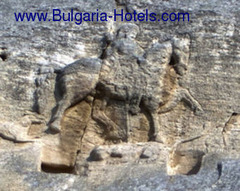
The Bulgarian state cannot afford to pay for large advertising initiatives and will count on public-private partnerships for popularising the country’s tourism abroad.
This first-of-its-kind revelation was made by State Agency on Tourism Chair Mario al-Djebouri in Veliko Turnovo on April 27. He was speaking before the opening of the third National Cultural Tourism Exchange in the northern Bulgarian city.
In al-Djebouri’s words, public-private partnerships should be employed in opening Bulgarian tourist offices in foreign countries, where Bulgaria has already become very popular as a vacation destination.
“The budget of our agency for this year is only 2.6 million leva, which forces us to look for alternative sources for funding the advertising of Bulgaria as a tourist destination,” al-Djebouri said.
In his view, commercial spots on world television channels like CNN are not a guarantee that the TV audience will find it worthwhile to visit Bulgaria. Therefore, he believes that Bulgaria should focus on certain target markets. Al-Djebouri gave the German capital Berlin as example, where Bulgarian ads will be posted in the public transport.
Public-private partnerships would allow foreign companies to become tourist representatives of Bulgaria in Scandinavian countries, Russia, the UK, Spain and other locations in Europe, he said.
The State Agency on Tourism expects a five to six per cent increase in the number of foreign tourists in Bulgaria this year and a total of about two billion euro in revenue in the sector, al-Djebouri said.
He announced that by the end of June, the agency will be ready with a strategy for the development of alternative forms of tourism, including cultural and historic tourism, religious, rural, eco, spa, adventure and golf tourism in Bulgaria. The agency will list all historical and cultural sites of national significance, which will be supported by the state.
Bulgaria’s lands were home to cultural and historical monuments of seven great European civilisations, whose artefacts, about five million of which have been discovered so far, have been exhibited in 236 museums, Bozhidar Dimitrov, director of the National Museum of History, told the tourist exchange in Veliko Turnovo.
He outlined four factors that are currently preventing Bulgaria from profiting from its cultural and historical sites. They are the non-defined ownership over many of the sites, the lack of mechanisms for conservation and restoration of monuments, the lack of infrastructure around the sites, and the absence of a PR strategy for the museums and the monuments.
After solving these problems, this country would be able to benefit from showing off its historical and cultural richness to foreigners, Dimitrov said.
A survey presented at the tourist exchange shows that the Madara Horseman is the most popular Bulgarian historical monument, followed by Rila Monastery and the ancient Thracian temples at Perperikon and Tatoul. Boyana Church and the bridges build by Kolyo Ficheto are also ranked as very popular.
“Cultural tourism is the cornerstone of our national spirit, but it is also a profitable business,” said Sonya Alexieva, member of the management board of the national Association of Hoteliers and Restaurateurs.
 The Bulgarian state cannot afford to pay for large advertising initiatives and will count on public-private partnerships for popularising the country’s tourism abroad.
This first-of-its-kind revelation was made by State Agency on Tourism Chair Mario al-Djebouri in Veliko Turnovo on April 27. He was speaking before the opening of the third National Cultural Tourism Exchange in the northern Bulgarian city.
In al-Djebouri’s words, public-private partnerships should be employed in opening Bulgarian tourist offices in foreign countries, where Bulgaria has already become very popular as a vacation destination.
“The budget of our agency for this year is only 2.6 million leva, which forces us to look for alternative sources for funding the advertising of Bulgaria as a tourist destination,” al-Djebouri said.
In his view, commercial spots on world television channels like CNN are not a guarantee that the TV audience will find it worthwhile to visit Bulgaria. Therefore, he believes that Bulgaria should focus on certain target markets. Al-Djebouri gave the German capital Berlin as example, where Bulgarian ads will be posted in the public transport.
Public-private partnerships would allow foreign companies to become tourist representatives of Bulgaria in Scandinavian countries, Russia, the UK, Spain and other locations in Europe, he said.
The State Agency on Tourism expects a five to six per cent increase in the number of foreign tourists in Bulgaria this year and a total of about two billion euro in revenue in the sector, al-Djebouri said.
He announced that by the end of June, the agency will be ready with a strategy for the development of alternative forms of tourism, including cultural and historic tourism, religious, rural, eco, spa, adventure and golf tourism in Bulgaria. The agency will list all historical and cultural sites of national significance, which will be supported by the state.
Bulgaria’s lands were home to cultural and historical monuments of seven great European civilisations, whose artefacts, about five million of which have been discovered so far, have been exhibited in 236 museums, Bozhidar Dimitrov, director of the National Museum of History, told the tourist exchange in Veliko Turnovo.
He outlined four factors that are currently preventing Bulgaria from profiting from its cultural and historical sites. They are the non-defined ownership over many of the sites, the lack of mechanisms for conservation and restoration of monuments, the lack of infrastructure around the sites, and the absence of a PR strategy for the museums and the monuments.
After solving these problems, this country would be able to benefit from showing off its historical and cultural richness to foreigners, Dimitrov said.
A survey presented at the tourist exchange shows that the Madara Horseman is the most popular Bulgarian historical monument, followed by Rila Monastery and the ancient Thracian temples at Perperikon and Tatoul. Boyana Church and the bridges build by Kolyo Ficheto are also ranked as very popular.
“Cultural tourism is the cornerstone of our national spirit, but it is also a profitable business,” said Sonya Alexieva, member of the management board of the national Association of Hoteliers and Restaurateurs.
see source
The Bulgarian state cannot afford to pay for large advertising initiatives and will count on public-private partnerships for popularising the country’s tourism abroad.
This first-of-its-kind revelation was made by State Agency on Tourism Chair Mario al-Djebouri in Veliko Turnovo on April 27. He was speaking before the opening of the third National Cultural Tourism Exchange in the northern Bulgarian city.
In al-Djebouri’s words, public-private partnerships should be employed in opening Bulgarian tourist offices in foreign countries, where Bulgaria has already become very popular as a vacation destination.
“The budget of our agency for this year is only 2.6 million leva, which forces us to look for alternative sources for funding the advertising of Bulgaria as a tourist destination,” al-Djebouri said.
In his view, commercial spots on world television channels like CNN are not a guarantee that the TV audience will find it worthwhile to visit Bulgaria. Therefore, he believes that Bulgaria should focus on certain target markets. Al-Djebouri gave the German capital Berlin as example, where Bulgarian ads will be posted in the public transport.
Public-private partnerships would allow foreign companies to become tourist representatives of Bulgaria in Scandinavian countries, Russia, the UK, Spain and other locations in Europe, he said.
The State Agency on Tourism expects a five to six per cent increase in the number of foreign tourists in Bulgaria this year and a total of about two billion euro in revenue in the sector, al-Djebouri said.
He announced that by the end of June, the agency will be ready with a strategy for the development of alternative forms of tourism, including cultural and historic tourism, religious, rural, eco, spa, adventure and golf tourism in Bulgaria. The agency will list all historical and cultural sites of national significance, which will be supported by the state.
Bulgaria’s lands were home to cultural and historical monuments of seven great European civilisations, whose artefacts, about five million of which have been discovered so far, have been exhibited in 236 museums, Bozhidar Dimitrov, director of the National Museum of History, told the tourist exchange in Veliko Turnovo.
He outlined four factors that are currently preventing Bulgaria from profiting from its cultural and historical sites. They are the non-defined ownership over many of the sites, the lack of mechanisms for conservation and restoration of monuments, the lack of infrastructure around the sites, and the absence of a PR strategy for the museums and the monuments.
After solving these problems, this country would be able to benefit from showing off its historical and cultural richness to foreigners, Dimitrov said.
A survey presented at the tourist exchange shows that the Madara Horseman is the most popular Bulgarian historical monument, followed by Rila Monastery and the ancient Thracian temples at Perperikon and Tatoul. Boyana Church and the bridges build by Kolyo Ficheto are also ranked as very popular.
“Cultural tourism is the cornerstone of our national spirit, but it is also a profitable business,” said Sonya Alexieva, member of the management board of the national Association of Hoteliers and Restaurateurs.
see source
 Member of:
Member of:
















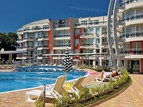

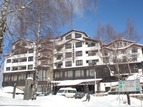
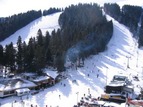

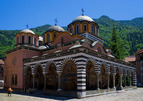


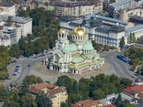


 Touroperator
Touroperator
